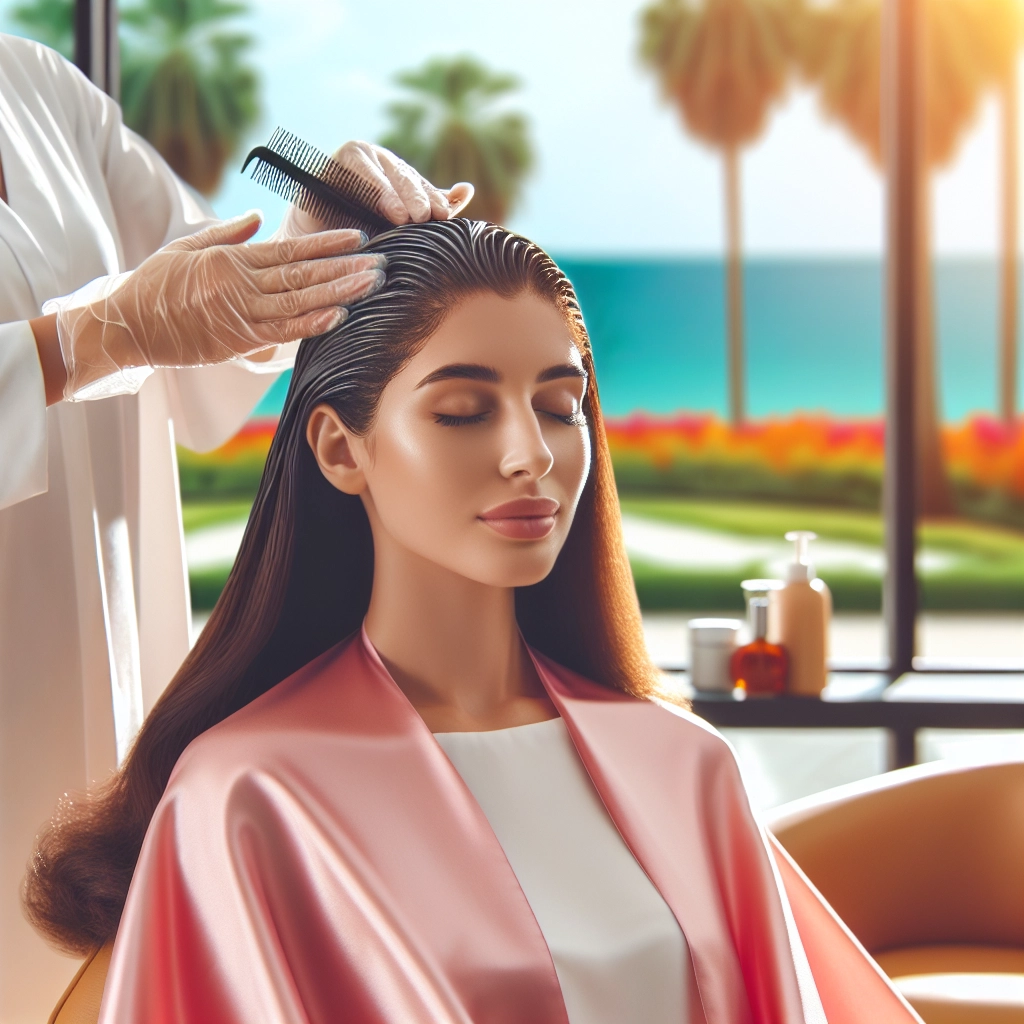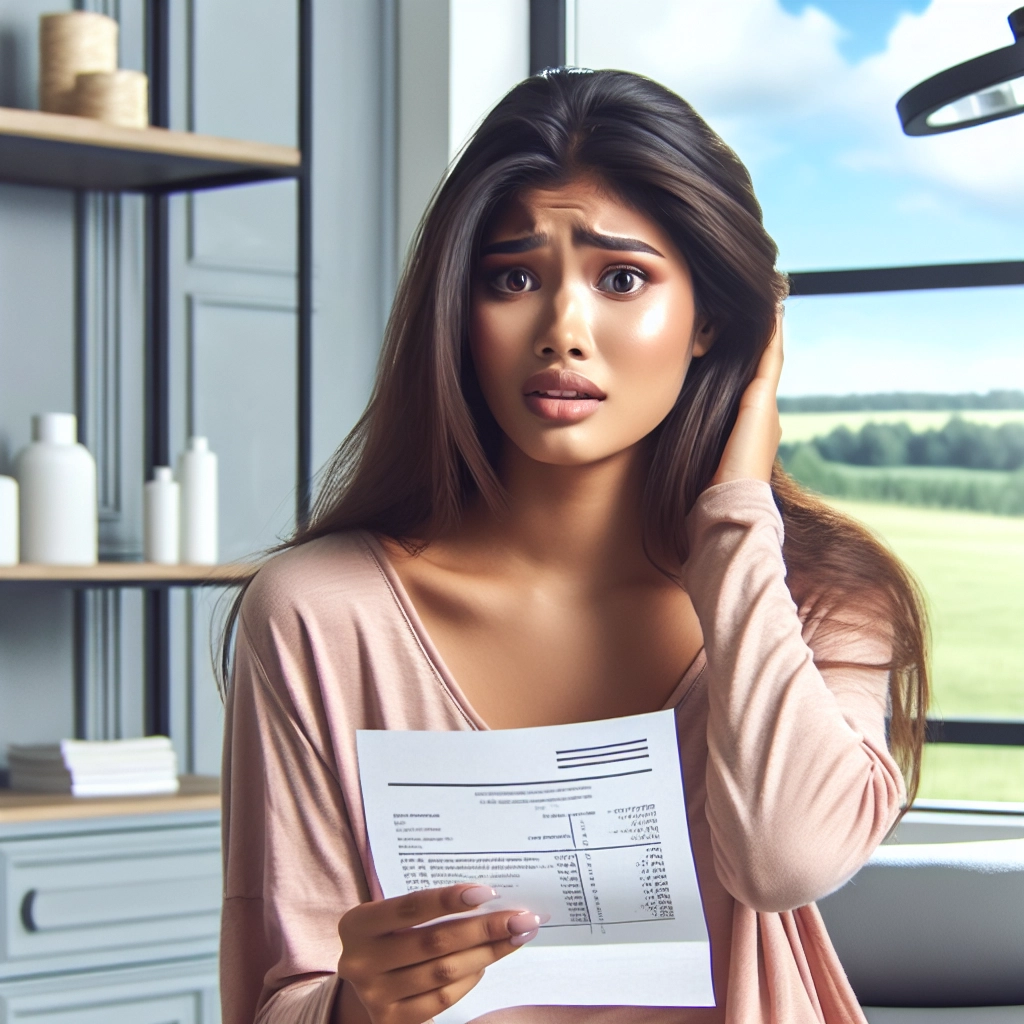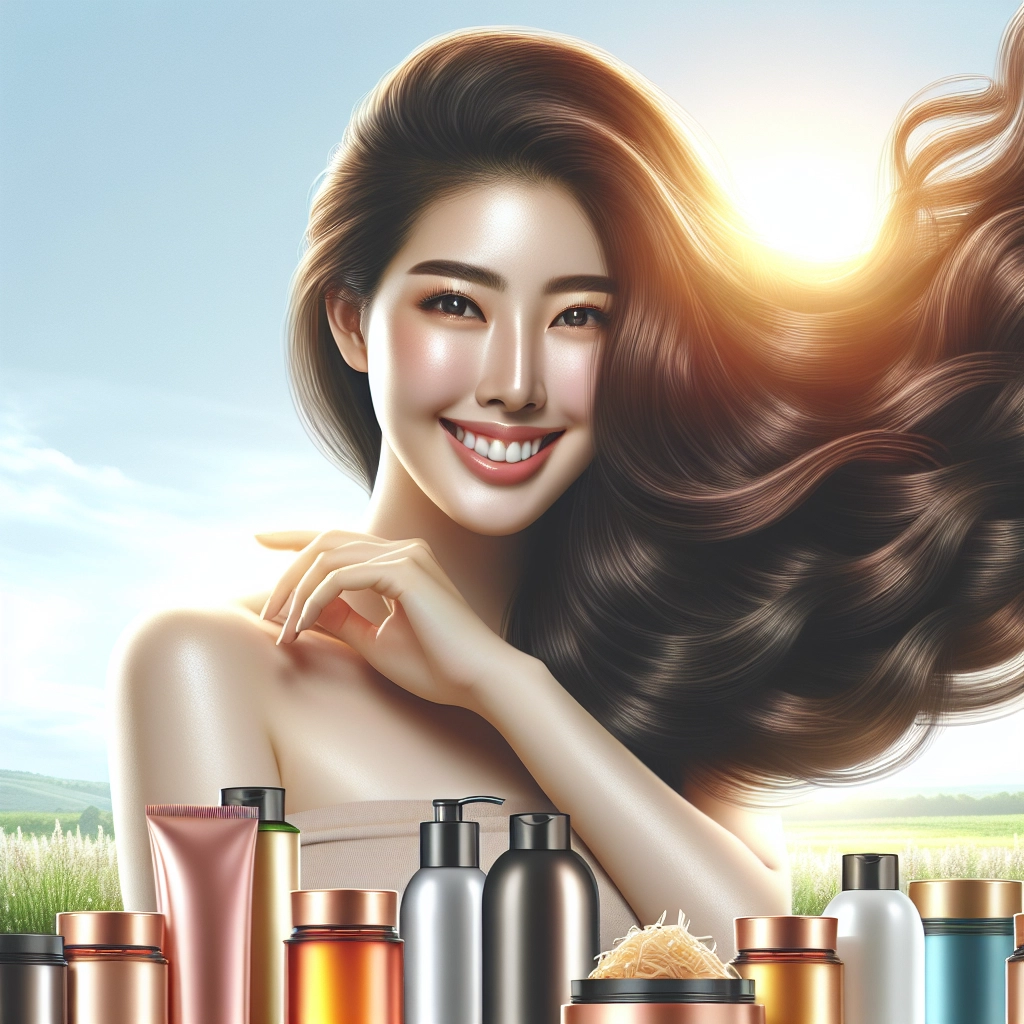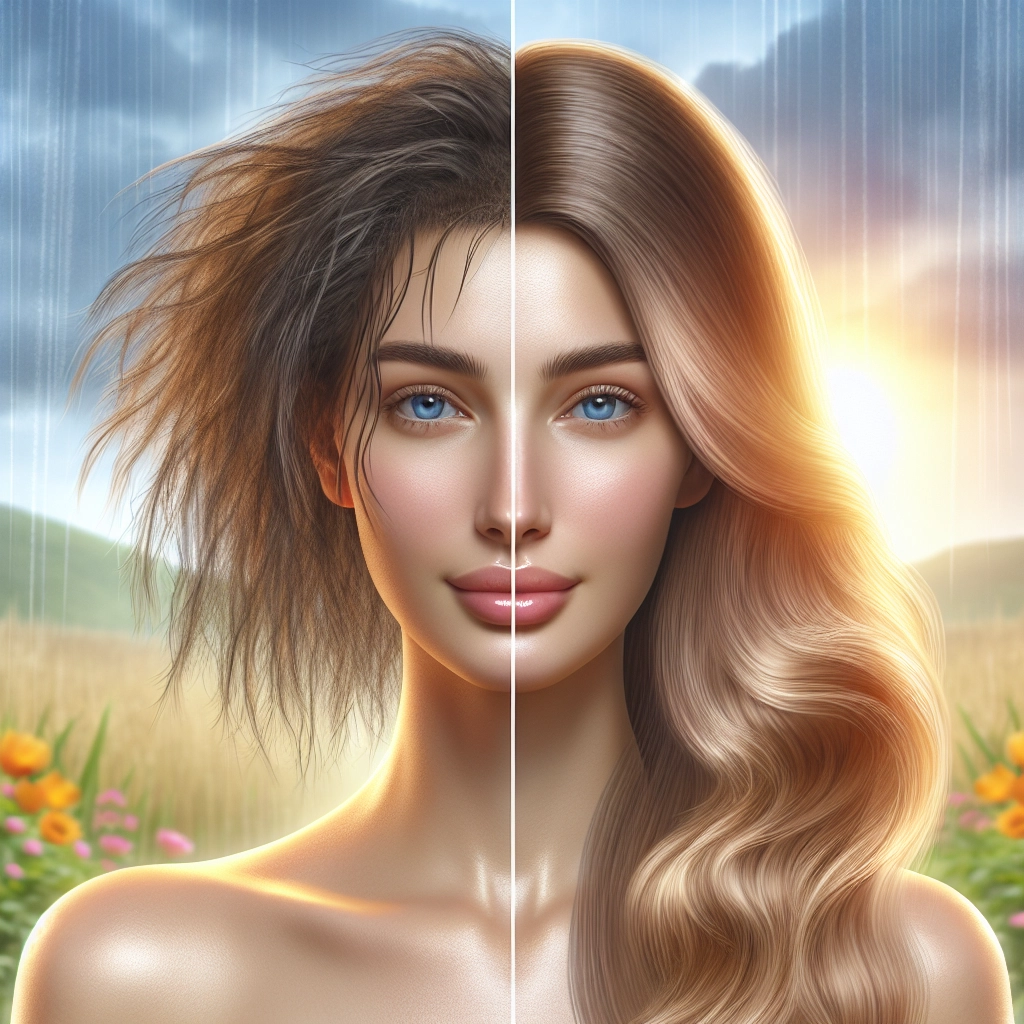

Scalp hair treatment involves various types of treatments such as detoxing, conditioning, hydrating, and strengthening to maintain the health of the scalp and hair.
It is important to incorporate scalp treatments into your hair care routine to promote healthy hair growth, unclog hair follicles, regulate oil production, and prevent dandruff and hair loss.
Scalp treatments can also improve the overall health of the hair by providing essential nutrients, vitamins, and minerals for healthy hair growth, as well as maintaining natural shine, volume, and texture.
Check out this Youtube video: “I Tried a $110 Japanese Scalp Treatment | Macro Beauty” for some amazing scalp hair treatment tips and tricks that will leave your hair looking and feeling healthier than ever!
Understanding Scalp Hair Issues
Scalp hair issues can be quite common and may include problems such as dandruff, lice, cradle cap, and psoriasis. These issues can cause discomfort and affect the overall health of your scalp.
The causes of scalp hair issues are varied and may include factors such as infections, hair loss, sores, damage from hair products, skin conditions, and underlying health problems.
Types of Scalp Hair Treatments
Topical treatments
- Topical treatments for scalp hair include shampoos, scale softeners, corticosteroids, and solutions. Shampoos and scale softeners are effective in managing scalp psoriasis, providing relief from symptoms such as redness, swelling, and itching.
Oral medications
- Oral medications, such as finasteride and minoxidil, are prescribed for men and women experiencing male pattern hair loss or androgenetic alopecia. These medications slow down the rate of hair loss and stimulate hair growth when applied to the scalp skin.
Laser therapy
- Low-level laser therapy (LLLT) is a non-invasive treatment that encourages hair growth by irradiating photons into scalp tissues, which are absorbed by weakened cells. This therapy has shown effectiveness in stimulating healing and hair growth after a hair transplant, managing non-scarring alopecias, and treating hair loss due to chemotherapy.
Choosing the Right Treatment for You
Understanding your scalp type
To understand your scalp type, you must observe the signs of dryness, oiliness, or balance. Look for indications such as flakiness, excessive oil, or a healthy, balanced appearance.
Consulting with a dermatologist
When seeking the most accurate guidance on scalp hair treatment, consult a dermatologist. Their expertise will provide personalized insight into the specific needs of your scalp.
Considering the effectiveness of different treatments
Take into account the effectiveness of various scalp treatments by assessing their impact on your scalp type. Evaluate the outcomes of treatments for dryness, oiliness, or balanced scalp.
DIY Scalp Hair Treatments
Natural remedies for scalp hair treatment
For a natural remedy to alleviate scalp issues, try rinsing with apple cider vinegar, known for its anti-inflammatory and antifungal properties. Additionally, applying coconut oil can help moisturize the scalp and reduce itchiness.
Benefits and drawbacks of DIY treatments
The benefits of DIY scalp treatments include cost-effectiveness, the use of natural ingredients, and the ability to customize the treatment to individual needs. However, drawbacks may include the time and effort required to prepare and apply the treatments, as well as the potential for allergic reactions to certain ingredients.
| Pros | Cons |
|---|---|
| Cost-effective | Time and effort-intensive |
| Utilizes natural ingredients | Potential for allergic reactions |
| Customizable |
Professional Scalp Hair Treatments
Overview of professional treatments
Professional scalp hair treatments involve specialized procedures performed by trained professionals to address various scalp and hair concerns. These treatments focus on promoting scalp health, stimulating hair growth, and addressing issues such as dandruff, itching, and dryness.
Pros and cons of seeking professional help
Pros:
– Expert Guidance: Professional hairstylists and dermatologists can offer personalized recommendations and targeted treatments based on individual scalp and hair needs.
– Specialized Solutions: Professional treatments often utilize advanced techniques and high-quality products tailored to specific scalp and hair conditions.
Cons:
– Cost: Professional scalp treatments can be expensive, especially for long-term maintenance and multiple sessions.
– Time-Consuming: Some treatments may require repeated visits, which can be inconvenient for individuals with busy schedules.
Home Care for Healthy Scalp and Hair
Proper scalp and hair care routine
To maintain a healthy scalp and hair, it is essential to follow a proper care routine. This includes regular cleansing and moisturizing of the scalp, using gentle hair care products, and avoiding harsh irritants that can lead to scalp issues.
Best practices for maintaining a healthy scalp
Maintaining a healthy scalp involves several best practices such as using sulfate-free products, incorporating scalp massages to stimulate circulation, and ensuring proper hydration through moisturizing treatments. Additionally, avoiding over-washing and reducing product buildup can contribute to scalp health.
Lifestyle Changes for Better Scalp Health
Diet and scalp hair health
- Making dietary changes can have a significant impact on scalp health.
- Including foods rich in omega-3 fatty acids like salmon, mackerel, and flaxseeds can promote healthy hair growth.
- Incorporating biotin-rich foods like eggs and leafy greens can also contribute to scalp health.
Impact of stress on scalp health
- Stress can negatively impact scalp health by increasing cortisol levels in the body.
- Elevated stress levels can lead to an imbalance in the scalp’s microflora, resulting in issues such as flaking and itching.
- Practicing stress-relieving activities and maintaining a healthy lifestyle can help mitigate the negative effects of stress on scalp health.
Understanding the Ingredients
In scalp hair treatments, some common ingredients to look for include rosemary, horse chestnut, sage, ginger, peppermint, lavender, and cedarwood. These ingredients are known for their nourishing and soothing properties, promoting a healthy scalp and hair growth.
Additionally, active skincare ingredients like hyaluronic acid, tea tree oil, rosemary oil, and castor oil can also play a vital role in scalp treatments, encouraging a healthy scalp environment.
Common ingredients in scalp hair treatments
- Rosemary
- Horse Chestnut
- Sage
- Ginger
- Peppermint
- Lavender
- Cedarwood
- Hyaluronic acid
- Tea tree oil
- Castor oil
Allergens to watch out for in products
| Allergens | Products |
|---|---|
| Fragrances | Hair dyes, waxes, oils, hair gels, hairsprays, minoxidil solution, topical steroids |
| Adhesives | Hair dyes, waxes, oils, hair gels, hairsprays, minoxidil solution, topical steroids |
| Dyes | Hair dyes, bleaching, lightening products |
| Emulsifiers | Hair dyes, waxes, oils, hair gels, hairsprays, topical steroids |
| Surfactants | Hair dyes, coloring, bleaching, lightening products, shampoos, conditioners |
| Preservatives | Hair dyes, waxes, oils, hair gels, hairsprays, minoxidil solution, topical steroids |
The Cost of Scalp Hair Treatments
Expenses related to different treatments
The cost of scalp hair treatments varies depending on the type of treatment opted for. Scalp Micropigmentation can cost between $2,000 to $5,000 for minor hair loss restoration, and up to $10,000 for severe hair loss restoration. Additionally, operating costs for Scalp Treatment Centers in the US range from $5,000 to $10,000 per employee annually.
Budget-friendly options for scalp hair treatment
For those seeking budget-friendly options, OGX Extra Strength Refreshing + Invigorating scalp treatment comes at a price ranging from $10 to $139, providing relief from scalp buildup without breaking the bank.
Scalp Hair Treatment for Different Hair Types
When it comes to addressing scalp issues for different hair textures, it’s important to tailor the treatment to the specific needs of each hair type. For dry and flaky scalps, moisturizing treatments with ingredients like coconut oil or aloe vera can provide relief.
For oily scalps, clarifying treatments with ingredients like tea tree oil or salicylic acid can help to balance oil production. It’s crucial to identify the unique characteristics of each hair type to effectively address scalp issues.
Tips for treating specific hair types
| Hair Type | Scalp Treatment |
|---|---|
| Dry and Flaky | Moisturizing treatments with coconut oil, aloe vera, or scalp oils |
| Oily | Clarifying treatments with tea tree oil, salicylic acid, or detoxifying scalp masks |
| Itchy and Irritated | Soothing treatments with calming serums, scalp tonics, or anti-inflammatory scalp treatments |
When it comes to treating specific hair types, incorporating scalp treatments tailored to the unique needs of each type can make a significant difference in promoting scalp health and overall hair wellness. It’s essential to consider the individual requirements of different hair textures and select the appropriate scalp treatments to achieve optimal results.
Potential Risks and Side Effects
Possible side effects of scalp hair treatments
- Patients undergoing scalp hair treatments may experience side effects such as:
- Irritant and allergic contact dermatitis
- Pruritus
- Scalp irritation
- Facial hypertrichosis
- The use of 5% solutions is more likely to lead to these side effects compared to 2% solutions.
- For instance, some patients may notice unwanted hair growth on the face and hands or experience inflammation or soreness at the root of the hair.
Precautions to take when undergoing treatment
- When undergoing scalp hair treatment, it is essential to:
- Monitor for any signs of irritant or allergic reactions such as redness, itching, or discomfort.
- Consult a dermatologist if there are any concerns about side effects or adverse reactions.
- Follow the recommended dosage and application instructions provided by the healthcare professional.
- It’s important to discontinue use and seek medical advice if serious side effects like unwanted facial/body hair, dizziness, or fast/irregular heartbeat are observed.
The Science Behind Scalp Hair Treatment
How different treatments work
Scalp treatments work through various mechanisms to address specific scalp issues. For instance, hair detox masques and exfoliating shampoos help unclog hair follicles, balance oil production, and improve scalp health.
This can lead to reduced hair loss and thinning, thus promoting overall scalp health.
Research and studies on scalp hair treatments
Several research studies have delved into the effectiveness of scalp hair treatments. These studies have shown promising results, including decreased hair loss, increased hair diameter, and improved follicular density.
Moreover, scalp care products have been found to control scalp conditions like dandruff, seborrheic dermatitis, and psoriasis, thereby exerting significant benefits for scalp health and hair growth.
Finding the Best Products for Scalp Hair Treatment
When it comes to finding the best products for scalp hair treatment, it’s crucial to understand how to read product labels like a pro. Look for key ingredients listed at the beginning, as they make up the bulk of the product.
Avoid products with long ingredient lists to simplify your choice.
To effectively pick scalp hair products, it’s essential to familiarize yourself with the common ingredients and their benefits. For instance, Panthenol (Provitamin B5) is renowned for its moisturizing properties, helping to keep your hair hydrated and soft.
Glycerin acts as a humectant, drawing moisture into your hair to reduce dryness.
Furthermore, recommendations for the most effective scalp hair products can be based on expert opinions and reviews from reputable sources. For example, the OGX Extra Strength Refreshing Tea Tree Mint Scalp Treatment has been rated as a budget-friendly and high-performing option for scalp health.
Another highly recommended product is the Briogeo Superfoods Banana + Coconut Nourishing Shampoo, known for its nourishing properties.
When selecting scalp hair treatment products, it’s crucial to focus on your specific needs, such as addressing itchiness, flaking, or excess oil. Look for ingredients like salicylic acid for folliculitis or hydrating components such as almond oil, shea butter, argan oil, and jojoba oil for moisturizing your scalp.
To simplify the selection process, consider the best hair thickening products with a keen evaluation of your needs, ingredients, and hair type. Choosing the right products tailored to your scalp concerns can significantly impact your overall hair health.
The Mental and Emotional Impact of Scalp Hair Issues
Dealing with self-esteem issues related to scalp hair problems
Hair loss can lead to significant self-esteem issues, causing individuals to feel withdrawn from close relationships, including family and friends. They may experience increased levels of anxiety, depression, and embarrassment, leading to a reduction in confidence and quality of life.
Seeking support from mental health professionals and loved ones is crucial in addressing these self-esteem concerns.
Seeking support for mental and emotional well-being
It is important to seek support for mental and emotional well-being when dealing with scalp hair issues. Consulting with a mental health professional can provide valuable guidance and treatment options tailored to individual needs.
Additionally, reaching out to support groups and relying on the understanding and encouragement of loved ones can significantly impact emotional well-being during this challenging time.
| Methods for Seeking Support for Mental and Emotional Well-Being |
|---|
| Consulting with a mental health professional |
| Joining support groups |
| Seeking understanding and encouragement from loved ones |
Mythbusting in Scalp Hair Treatment
Some common misconceptions about scalp hair treatment need to be debunked for good. Let’s set the record straight on these popular beliefs to ensure that you have the right information for maintaining a healthy scalp and luscious hair.
| Myth | Reality |
|---|---|
| Frequent hair washing helps fight dandruff | Washing hair every day is not essential |
| Applying a mask daily vs. a conditioner | Daily mask application doesn’t necessarily improve hair suppleness |
| Washing your hair every day causes issues | Regular hair washing can actually support scalp health and hair growth |
By debunking these myths, we can pave the way for better understanding and implementing effective scalp hair treatments. Let’s ensure we don’t fall prey to misleading misconceptions about scalp hair care.
Recommended Amazon Products for Scalp Hair Treatment
Here’s a curated list of products that can help you achieve healthy scalp and hair with ease. These recommendations are based on effectiveness, positive reviews, and value for money.
Kérastase Specifique Intensive Scalp Treatment
This scalp treatment from Kérastase helps to soothe and revitalize the scalp, promoting a healthy environment for hair growth. It is highly effective in addressing common scalp issues such as dryness, itchiness, and sensitivity.
Pros and Cons
| Pros | Cons |
|---|---|
| Effectively soothes and revitalizes the scalp | Can be expensive for some users |
| Promotes a healthy environment for hair growth | May not be suitable for all scalp types |
| High-quality, trusted brand |
Pura D’or Original Gold Label Anti-Hair Thinning Shampoo
Pura D’or’s anti-hair thinning shampoo is a popular choice for improving scalp health and addressing hair loss concerns. It contains natural ingredients that nourish the scalp and promote thicker, healthier hair.
Pros and Cons
| Pros | Cons |
|---|---|
| Contains natural ingredients | Some users may find the scent too strong |
| Promotes thicker, healthier hair | Results may vary for different individuals |
| Addresses hair loss concerns |
ArtNaturals Argan Hair Mask
This Argan hair mask from ArtNaturals is a deeply nourishing treatment that helps to moisturize and rejuvenate the scalp and hair. It is known for its ability to improve overall scalp health and manageability of the hair.
Pros and Cons
| Pros | Cons |
|---|---|
| Deeply nourishing and moisturizing | May not be suitable for oily scalp types |
| Rejuvenates the scalp and hair | Some users may prefer a leave-in treatment |
| Improves overall scalp health |
Maple Holistics Tea Tree Special Formula Shampoo
Maple Holistics’ tea tree shampoo is a popular choice for addressing various scalp issues such as dandruff, dryness, and flakiness. It contains natural ingredients that provide gentle yet effective cleansing and nourishment for the scalp.
Pros and Cons
| Pros | Cons |
|---|---|
| Addresses scalp issues effectively | Some users may find the scent too strong |
| Gentle yet effective cleansing | Results may vary for different individuals |
| Contains natural ingredients |
Nizoral A-D Anti-Dandruff Shampoo
Nizoral’s anti-dandruff shampoo is highly recommended for treating stubborn dandruff and scalp conditions. It contains ketoconazole, which is known for its antifungal properties, making it an effective solution for dandruff and related scalp issues.
Pros and Cons
| Pros | Cons |
|---|---|
| Highly effective in treating dandruff | Some users may experience dryness with frequent use |
| Contains ketoconazole for antifungal properties | Not suitable for color-treated or damaged hair |
| Recommended by dermatologists |
Top Recommended Product for Scalp Hair Treatment
If you’re looking for the best solution for scalp hair treatment, we highly recommend Kérastase Specifique Intensive Scalp Treatment. Here’s why:
This scalp treatment from Kérastase is highly effective in soothing and revitalizing the scalp, promoting a healthy environment for hair growth. It is recommended by dermatologists and has received positive reviews for its effectiveness.
Ready to improve your scalp health and hair growth? Check out Kérastase Specifique Intensive Scalp Treatment(https://www.amazon.com/s?k=K%C3%A9rastase+Specifique+Intensive+Scalp+Treatment) today for the best results!


Conclusion
We have discussed the key points regarding scalp hair treatment, including the importance of proper diagnosis, the various treatment options available, and the potential factors to consider when seeking treatment. It is crucial to understand that each individual’s scalp hair condition is unique, and therefore, seeking professional advice is essential for determining the most effective treatment approach.
Furthermore, it is important to encourage individuals to seek the best scalp hair treatment for their individual needs. By consulting with dermatologists or hair care professionals, individuals can receive personalized treatment plans and recommendations tailored to their specific scalp and hair conditions.
It is important to remember that finding the right treatment may require some trial and error, but with persistence and patience, individuals can achieve healthier and fuller-looking hair.
Finding the best scalp hair treatment involves a proactive and informed approach. By staying informed about the available treatment options, understanding individual needs, and seeking professional advice, individuals can take the necessary steps towards improving their scalp and hair health.
It is important to remain patient and determined throughout the process, as finding the right treatment may take time, but the potential improvements in scalp hair health and appearance are well worth the effort.
















